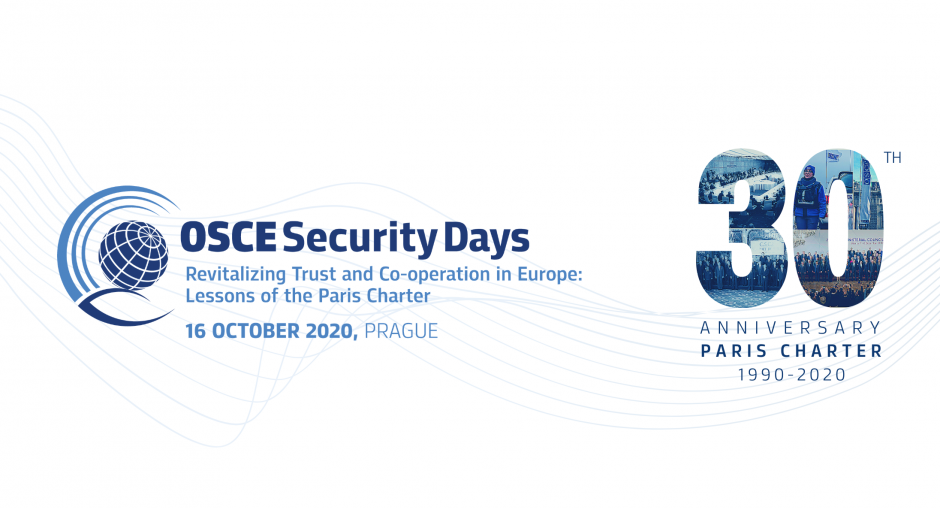Security Days: Revitalizing Trust and Co-operation in Europe: Lessons of the Paris Charter
When
Where
Organized by
Watch the video recording:
The OSCE traces its origins to the Cold War détente of the early 1970s, when the Conference on Security and Co-operation in Europe (CSCE) was created to serve as a multilateral forum for dialogue and negotiation between East and West. Fifteen years after their first summit in Helsinki in 1975, the Heads of State of the CSCE participating States adopted the Charter of Paris for a New Europe in November 1990. The Charter aimed at defining the CSCE’s role in a new international environment that emerged with the end of the Cold War, seizing new opportunities for co-operation.
The Paris Charter announced that “the era of confrontation and division of Europe has ended” and envisioned “a new era of democracy, peace and unity” based on democratic governance, the rule of law, and human rights, and relations among participating States founded on respect and co-operation.
Today, as we approach the 30th anniversary of the 1990 Charter of Paris for a New Europe, ideas, ambitions and aspirations captured in the document remain an inspirational vision for a secure and prosperous wider European area of shared values and interests. At the same time, the OSCE is experiencing today a time of deepening distrust and heightened tensions between the 57 participating States, not seen since the Cold War.
What lessons from the Paris Summit and Charter could be relevant to rebuilding a more co-operative approach to European security in the current difficult climate 30 years after the adoption of the Paris Charter?
The OSCE will hold a Security Days event on 16 October during which participants will discuss the highlights and turning points of the negotiations at the time, which embodied multilateral diplomacy par excellence and led to the unprecedented convergence between East and West in the run-up to the Summit.
Participants will have the opportunity to reflect on the progress made over the past three decades in implementing and deepening the broad commitments in the Paris Charter as well as continuing challenges, taking into account Albania’s 2020 OSCE Chairmanship priority of “implementing our commitments together.” Discussions will include reflection on steps forward as well as gaps in such areas as building inclusive, democratic and tolerant societies with full equality for women and men, enhancing economic openness and co-operation, and strengthening friendly relations, a sense of unity and improved security among participating States.
OSCE Security Days gather prominent experts from governments, think tanks and academic institutions, civil society, youth and the media, to engage with each other and with OSCE participating States and Partners for Co-operation in an informal and interactive discussion. They are intended as a platform for sharing experiences and good practices, and offer an opportunity to examine emerging trends and priorities for action.
The OSCE Security Day is open to representatives of think tanks and academic institutions, civil society, youth, and the media, subject to prior registration and confirmation from the OSCE Secretariat.
Due to the COVID-19 pandemic, the event will take place in a virtual format via Zoom. Up to 300 participants will be able to register for participating via Zoom on a first-come, first-served basis. The event will be live-streamed here https://www.osce.org/live.The OSCE Security Day is open to representatives of think tanks and academic institutions, civil society, youth, and the media, subject to prior registration and confirmation from the OSCE Secretariat. Persons interested in participating should submit an electronic registration form available at https://events.osce.org/2020-security-days-prague/registration

